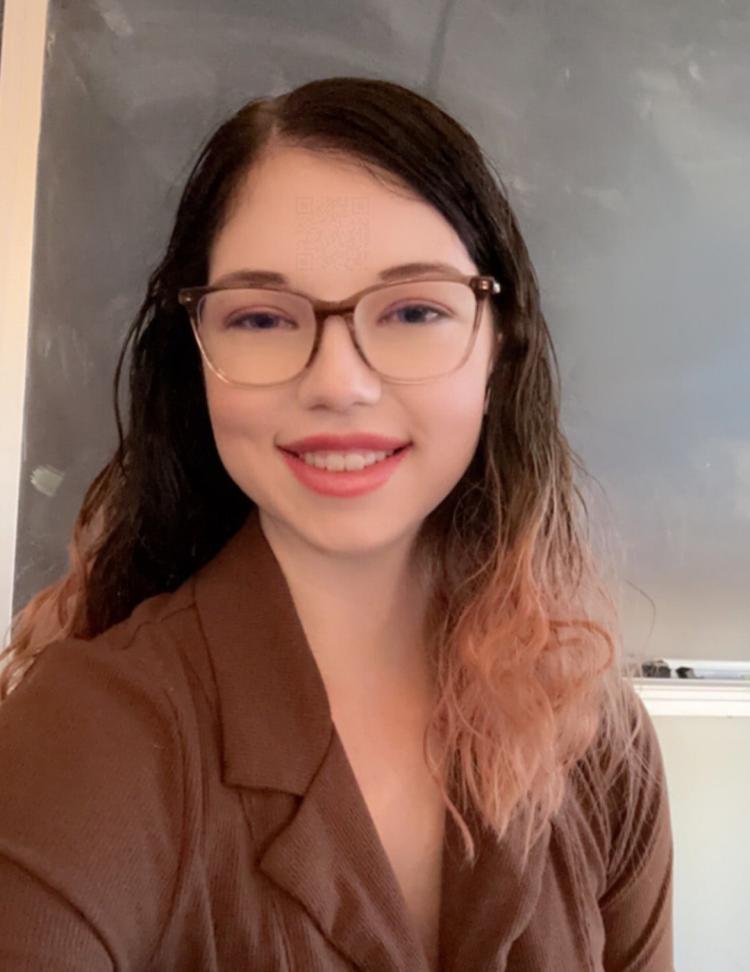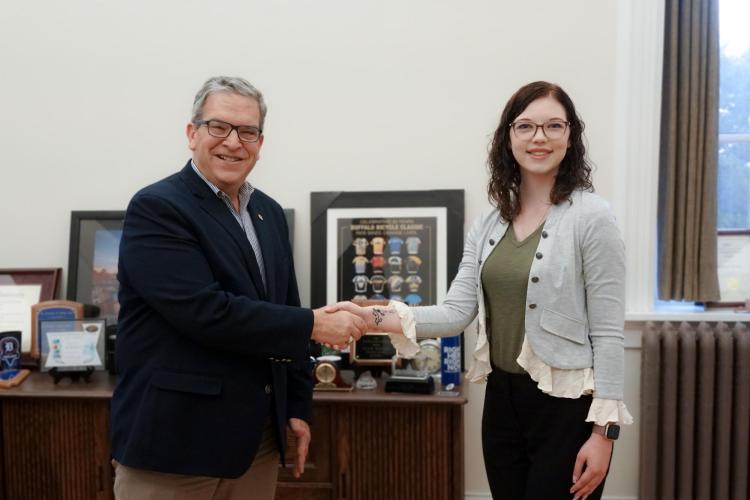Rising star in physics was discouraged from studying physics
As a high school student, Morgan Knuesel was counseled to avoid a class in physics, because it was too ‘hard’; this week, she graduates with a degree in physics, summa cum laude, and is the 2023 outstanding graduate of the College of Arts and Sciences
For two years, other high school kids in Castle Rock, Colorado, persuaded Morgan Knuesel not to take a physics course, which they said was too hard. In her junior year, however, an administrative error placed her in that widely feared class.
“As it turned out, physics was the perfect marriage of math and science for me,” said Knuesel, who graduates this week with a degree in physics, summa cum laude. She also has been designated as the 2023 outstanding graduate of the University of Colorado Boulder College of Arts and Sciences. In the fall, she heads to Yale University to pursue a PhD in physics.
The evidence shows that Knuesel’s peers were, simply, wrong.

In 2022, Morgan Knuesel was selected for the US ATLAS Summer Research Program for Exceptional Researchers (SUPER) to fund her research studying the modifications of particle jets in the quark-gluon plasma created in ultra-relativistic heavy ion collisions at CERN's Large Hadron Collider.
By the time she got to high school, Knuesel had learned to love science, but the warnings about physics’ difficulty prompted her to plot a course toward a medical degree. Once in the physics course, things clicked for her:
“In physics, math is a tool to understand the complex workings of the universe,” Knuesel said. “Though high school level physics deals mostly with problems like blocks-on-ramps and simple pendula, I felt comfort in being able to deeply understand these systems. This changed the course of my life.”
She applied to college as a physics major and took AP physics in high school. “In this class, there were (to my best memory) about 14 students, four of whom were women,” she recalled, adding: “I was oblivious to the larger systemic gender gap in physics at the time—I just wanted to show the men that I could do better than them.”
Mission accomplished.
Knuesel applied to only two colleges: CU Boulder and the University of Denver. “After touring both, I knew that CU Boulder would be my home. It's fortunate that CU also has an incredibly successful and supportive physics department! I feel like I've thrived here.”
In 2021, Knuesel joined the nuclear experiment research group led by Professors Dennis Perepelitsa and James Nagle, where she has been “nothing short of outstanding,” Nagle wrote.
She graduated with a 3.970 grade-point average and got rave reviews for her defense of her honors thesis, “Investigations of Jet Quenching in 5.02 TeV Event Selection in Peripheral PbPb Collisions with ATLAS.” ATLAS is a general-purpose particle-physics experiment at the Large Hadron Collider, or LHC, at CERN, the European Organization for Nuclear Research.
Nagle hailed Knuesel’s “impressive” ability to independently develop the tools for analyzing data, and her “excellent communication skills” in giving group meeting and ATLAS-level presentations.”
Knuesel demonstrated this ability as she described her research to a non-physicist who asked if she worked in the realm of the probabilistic or deterministic: “At a sub-atomic level, at a quantum level … we’re trying to understand the strong nuclear force, which dominates at the level of 10-15 meters, so super-super small. We’re dealing with particles smaller than protons. So, that is entirely probabilistic, but what we actually measure is deterministic, such as the energy lost by a particle that travels through the detector material.”

Knuesel meets with the University of Colorado Boulder's dean of the College of Arts and Sciences, Glen Krutz. Photographed by Kylie Clarke.
“So, in the great view of things, we’re trying to reconstruct this probabilistic theory out of deterministic things you can measure,” she observed.
Meanwhile, “One of my big passions is helping more women get involved in physics, because there’s a systemic problem of women and under-represented minorities being pushed out of science” in the U.S. education system at large, she noted.
At CU Boulder, she does this by speaking with other women in physics, discussing things like how to gain a research position and how to assert oneself in a research position, professional development, tips on writing papers, and help with making presentations.
“That’s been a big passion of mine that I hope to continue to be able to work on in graduate school,” Knuesel said.
She has been active in CU Boulder’s Women and Gender Minorities in Physics.
“From my observations, she is running the show, and this serves a very important role here in Boulder,” Nagle said, adding:
“I have worked with many undergraduate students over the last 20 years, and she is really one of the very best.”

